Honouring Bomber Command and ancient buffalo in Alberta
My objective for yesterday was to re-visit the Head-Smashed-In Buffalo Jump World Heritage Site, 209 km south near Fort MacLeod, but I got sidetracked a bit as well 🙂
Trying to work with my car’s navigation system was extremely frustrating – the directions even to get through Calgary just made no sense. I finally pulled over and did some digging into the basics of the system and dicovered that the previous owner had set “Avoid Freeways” as a basic instruction. That explained much of the craziness!
With that sorted out, my first distraction was seeing a sign pointing to the Bar U Ranch National Historic Site, 3 km to the west. I never did find it, and I discovered that 2 parts of that directional sign were missing – the “4” that should be after the “3” (34 km), and the “Closed” sign.
But, Highway 540 did take me into some pretty country, so I didn’t mind at all. I got a few shots of the grain elevator at Azure. It was built by Alberta Pacific in 1927, and closed in 1962 when rancher Sam Brown bought it.
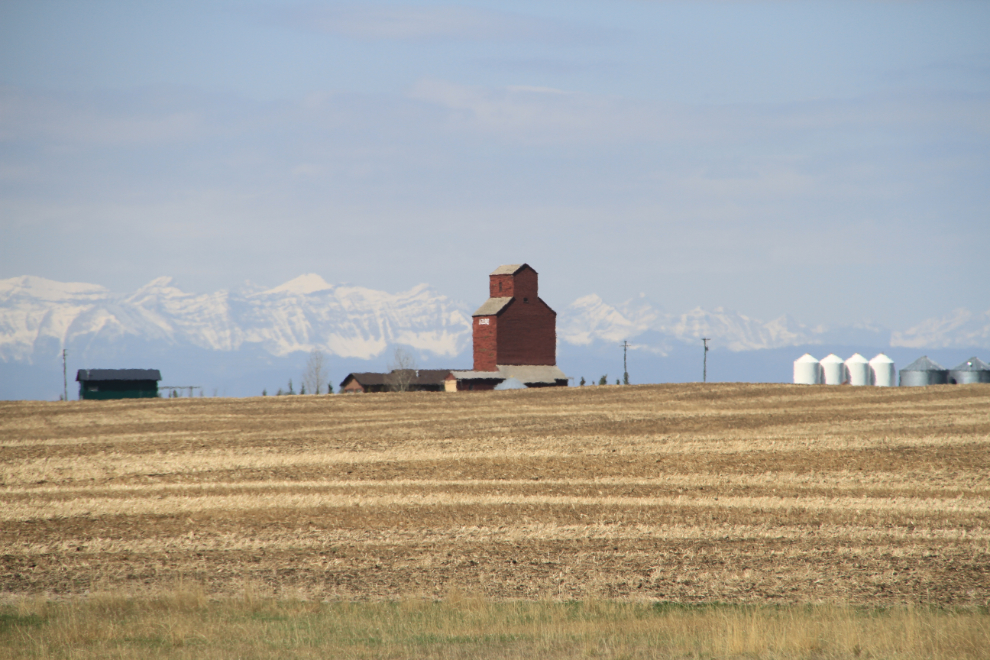
There are a few alkaline lakes in this area. They have extremely high levels of various types of salt, which is what causes the white shores
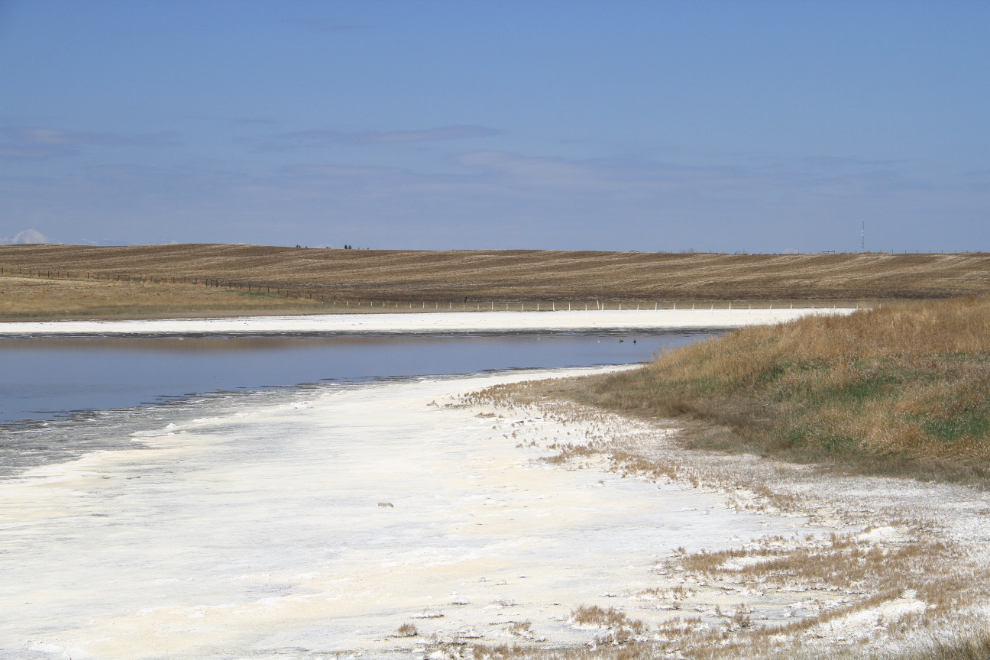
I really like tractors, especially when they’re working.
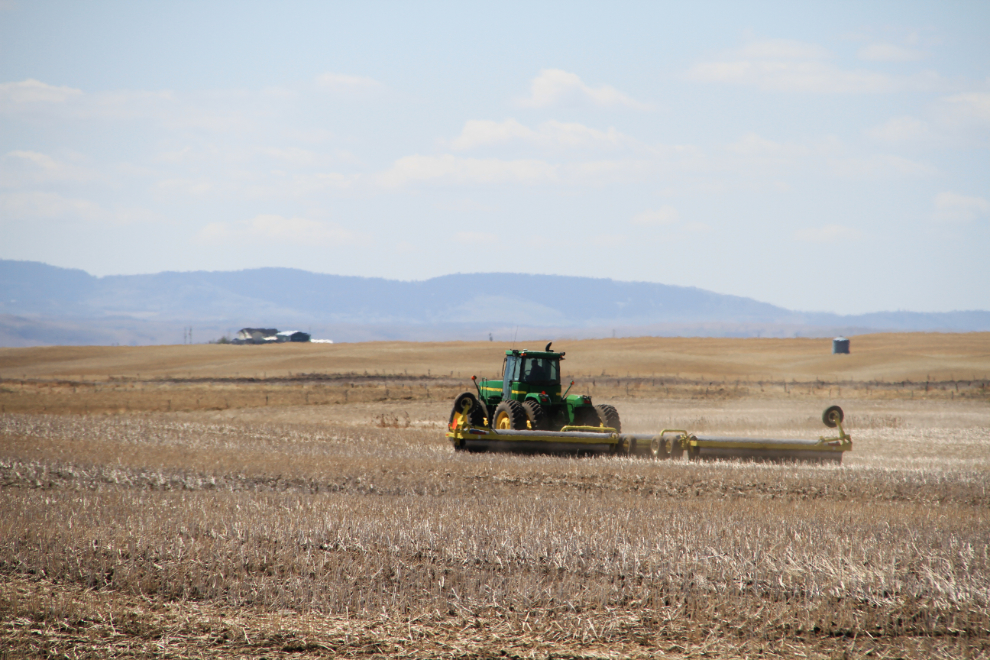
The view to the west on Highway 540.
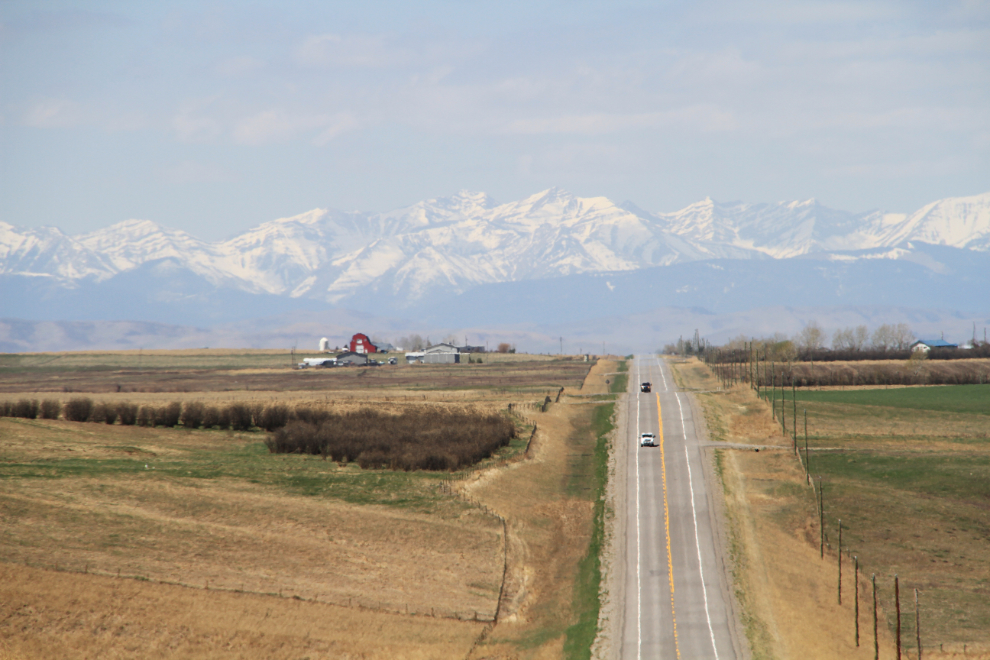
Those are cows in the bottom of this impressive little valley along 540. My guess is that it was caused by a river draining a glacier tens of thousands of years ago.
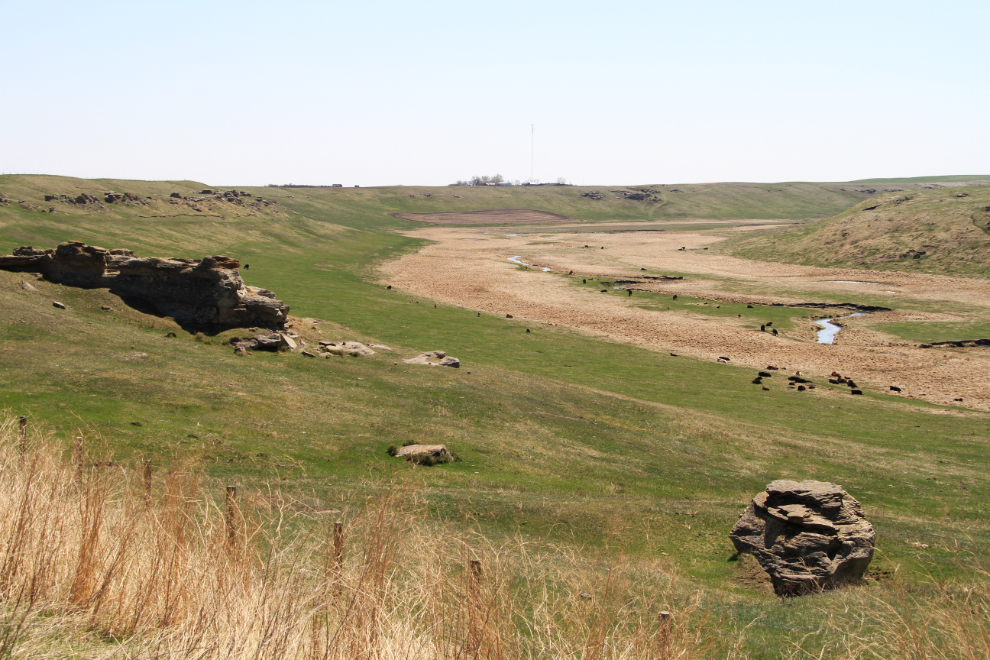
Another look at the Azure grain elevator, with a working tractor as a bonus for me. 🙂
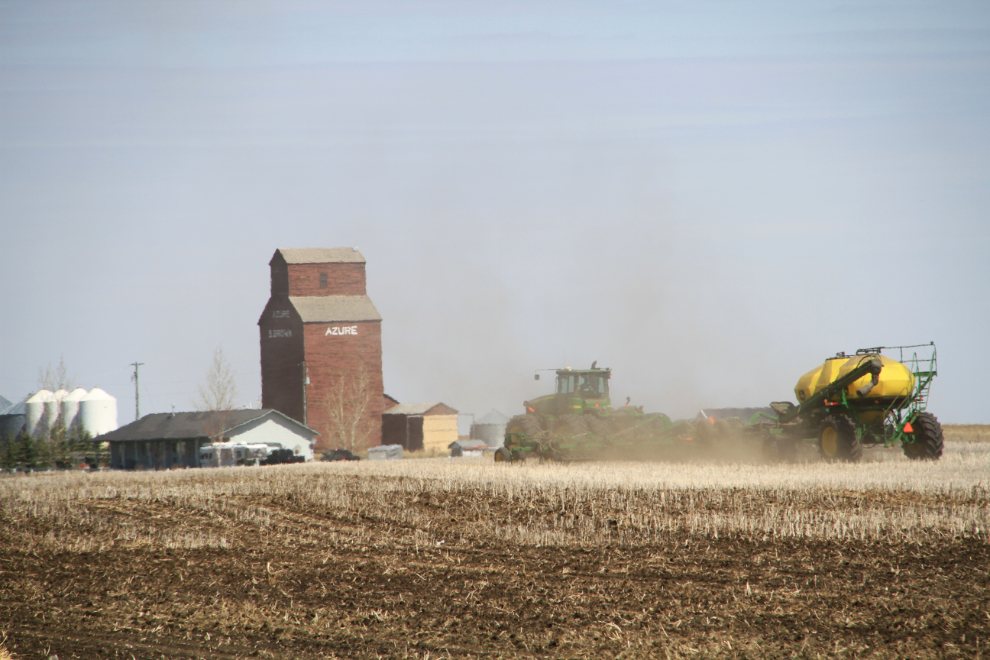
That’s unique! A house with multiple geodesic domes is not what I expect to see in Alberta ranching country at all.
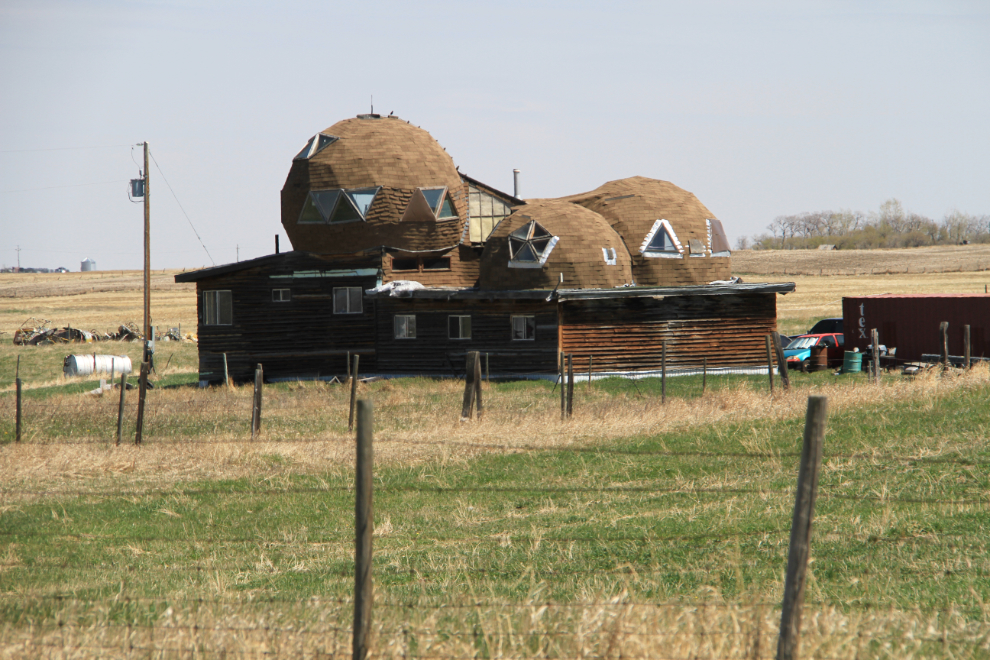
Nearing the community of Nanton, I was reminded of an aviation museum that I’ve wanted to see for many years – the Bomber Command Museum of Canada, also known by its pre-2010 name, the Nanton Lancaster Society Air Museum. Whenever I’ve driven past, I’ve been unable to stop because I was driving commercially and on a tight schedule.
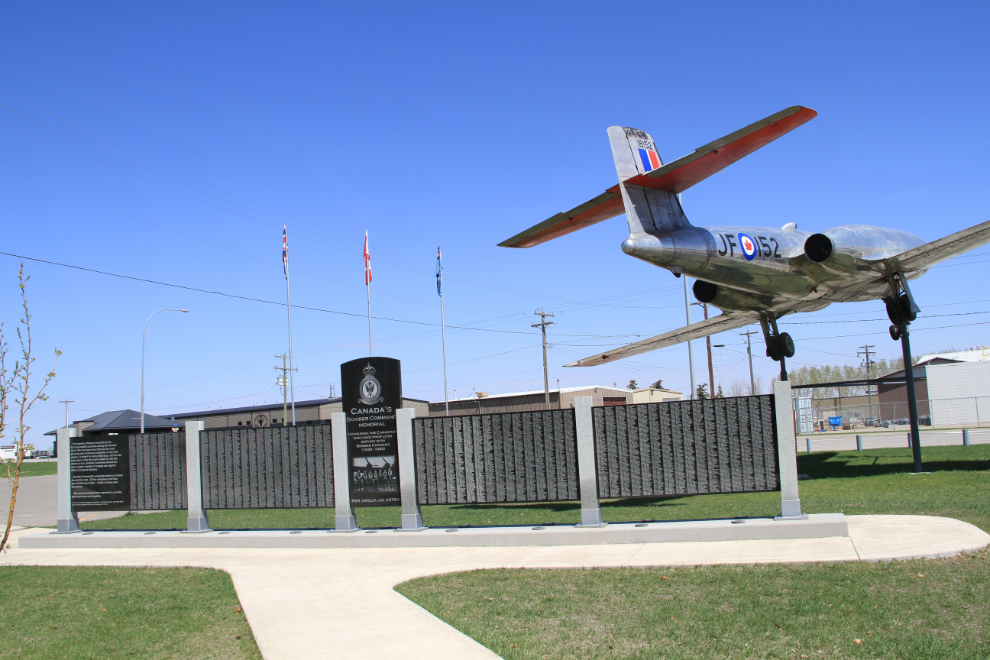
Admission is free but I was happy to put the suggested donation of $10 into the box, as it was clear as soon as I walked in the door that this was going to be an excellent stop. This painting is one of the first exhibits visitors see. Based on a real crash, it illustrates the appalling fact that of the 100,000 men who volunteered for Bomber Command during World War II, almost 60,000 were killed in action.
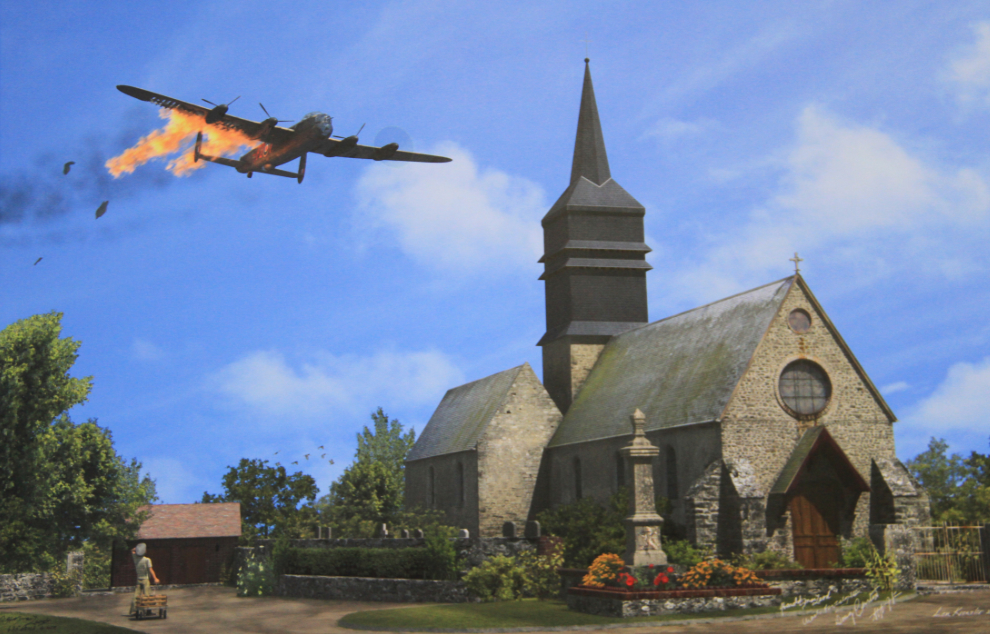
There are 16 aircraft in the museum’s collection, in varying states of repair from rough to near-perfect.
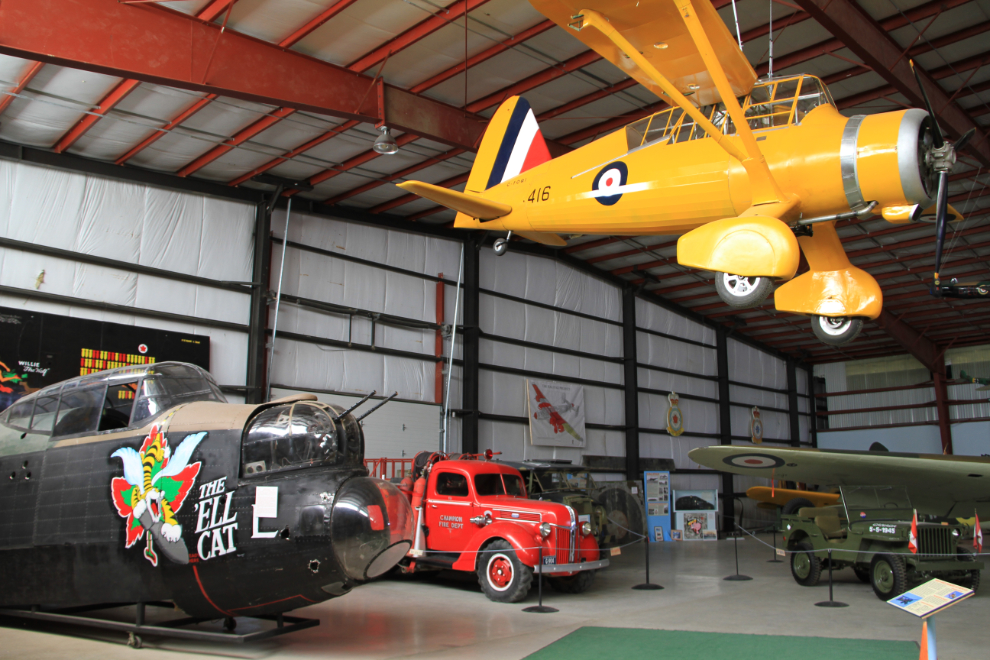
Being able to climb into the Lancaster and sit for a few minutes makes it very clear what a mission might be like – if you can imagine the deafening noise and the fear-driven knot in your stomach.
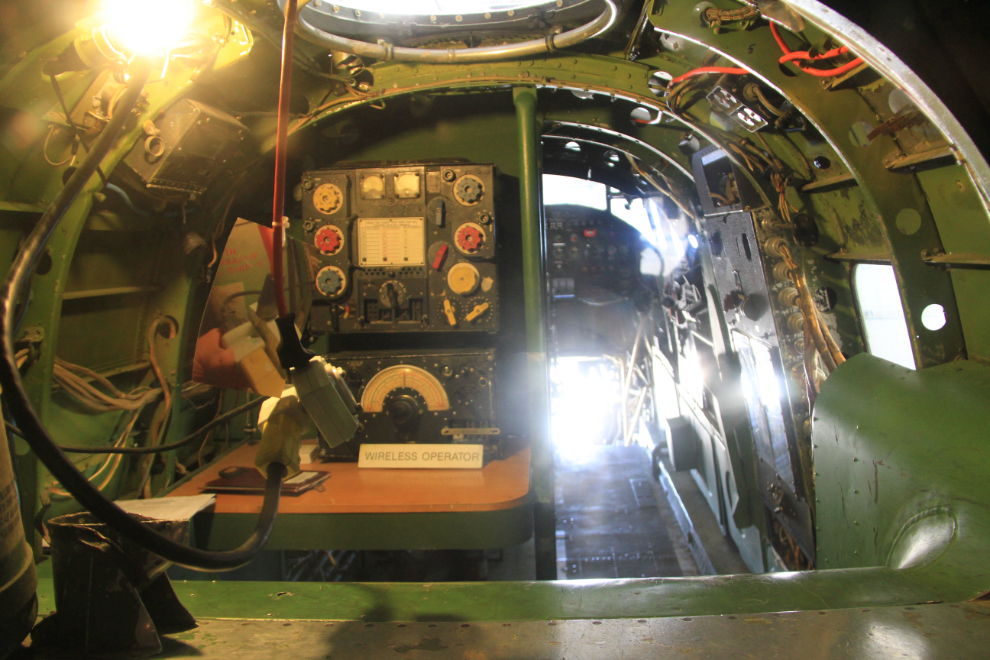
As always, I didn’t have enough time, but now I have it on my list for another visit, perhaps when I come down in 6-8 weeks on my motorcycle.
It was 2:40 pm when I finally reached Head-Smashed-In Buffalo Jump, and I was getting a bit nervous about making my family wait for me for a dinner out. The plaza seen here was dedicated on July 25, 2012, to commemorate the 40th anniversary of the World Heritage Convention.
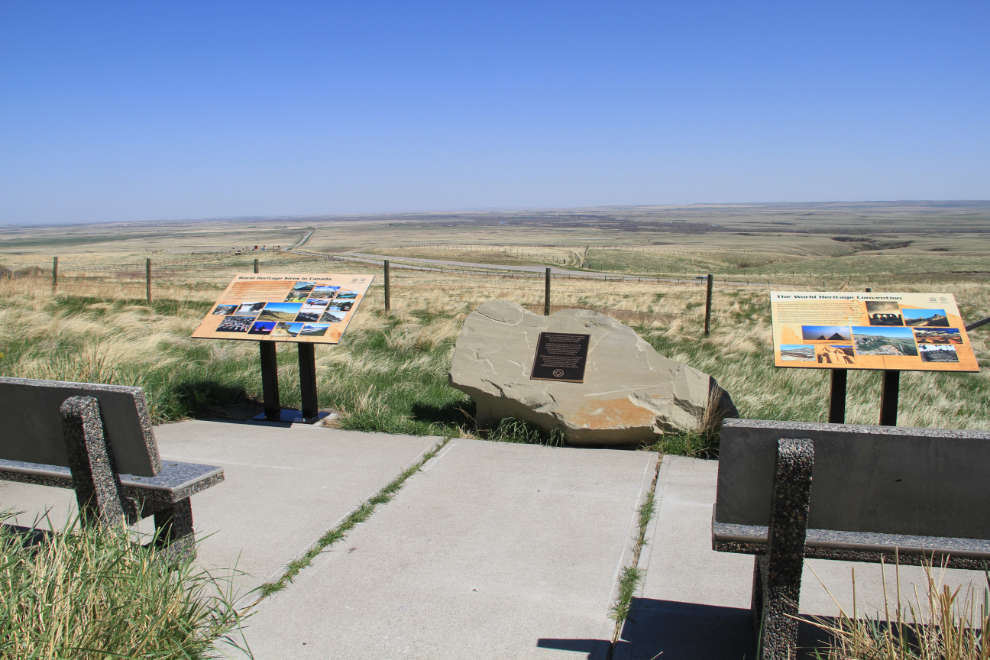
The design of the large facility, which opened in 1987, appears very simple at first glance, and it blends beautifully into the sandstone slopes.
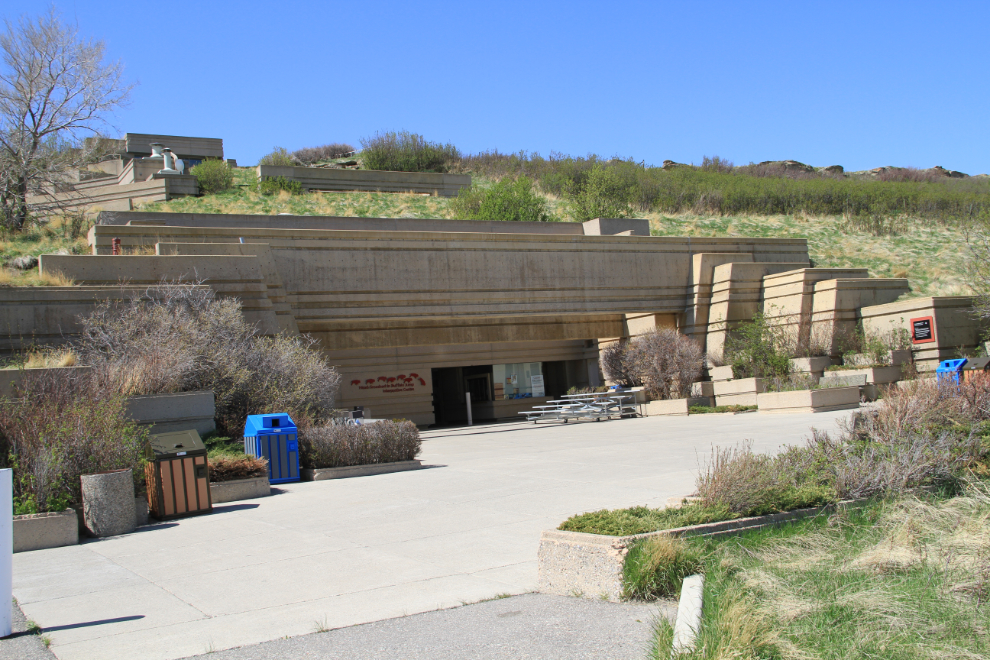
A tour is best started by viewing a 15-minute film, and it’s recommended that visitors allow 2½ hours to tour the site – an hour on the trails outside, and the rest inside.
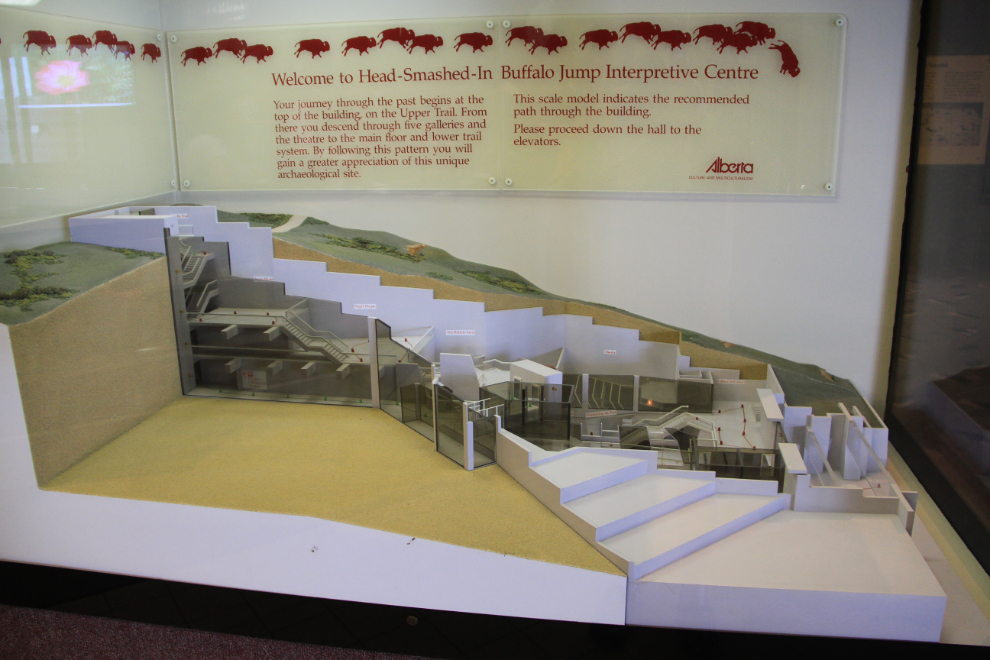
The various levels of the building and site can be accessed by either elevator or stairs.
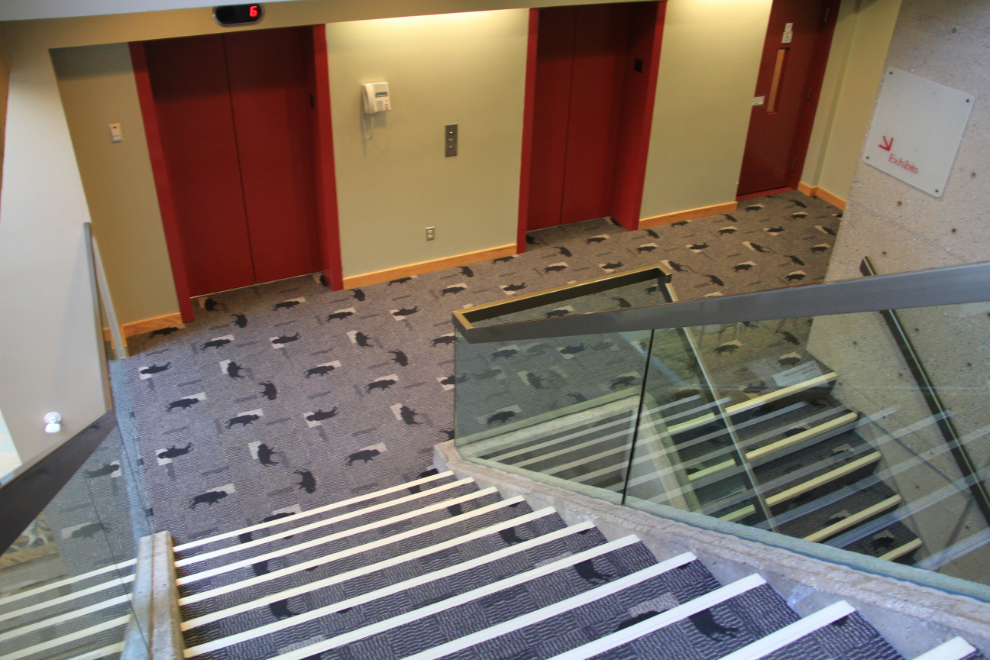
The view to the Rocky Mountains to the west, from the concrete trail along the top of the cliffs.
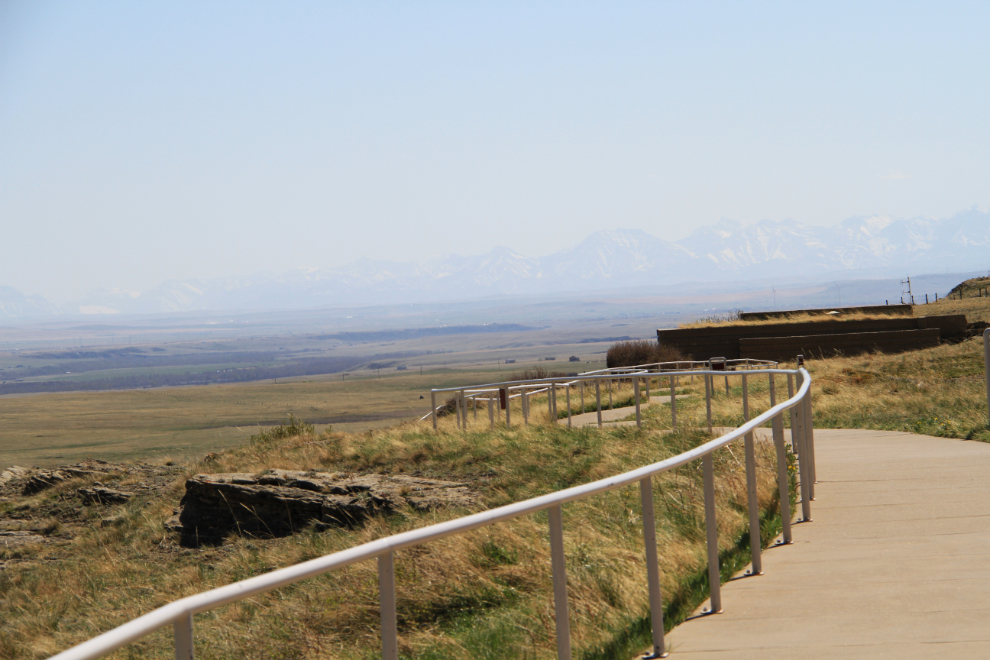
A large wind farm can also be seen, on the opposite side of the Oldman River valley.
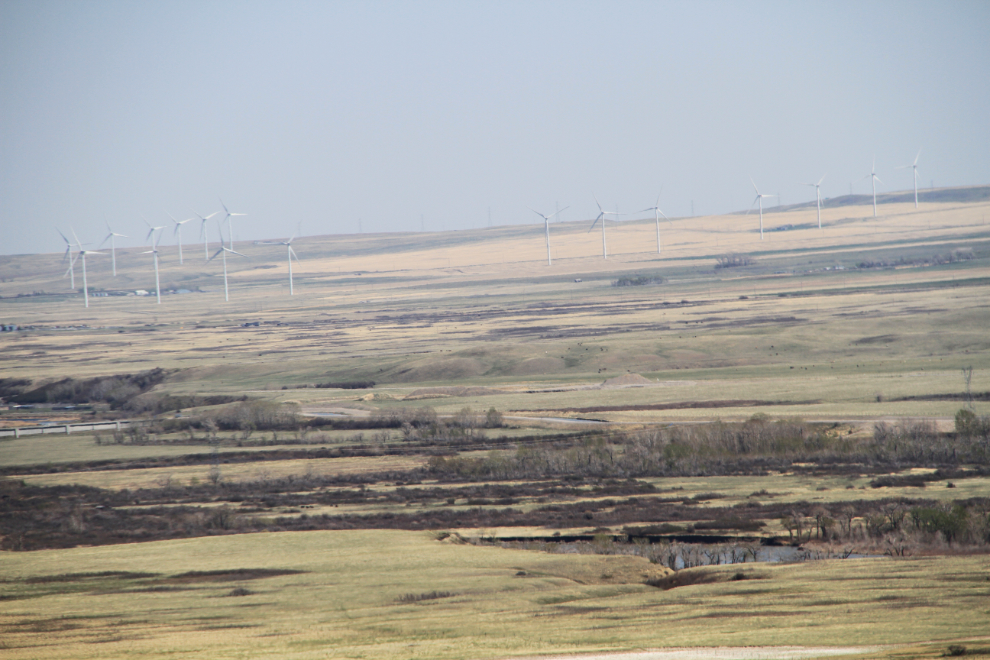
The primary location of interest outside is the top of the cliffs that the buffalo were driven over starting about 5,700 years ago. It’s estimated that about 100,000 buffalo were killed here.
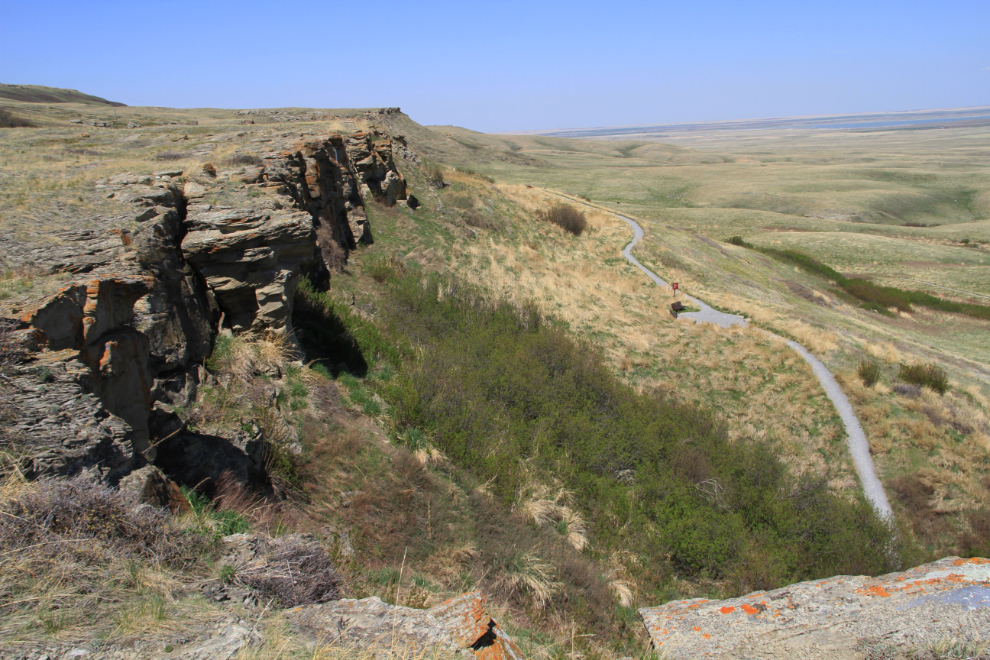
There’s no question that some parts of the site may be upsetting to some people – the realities of life in the early days were often harsh.
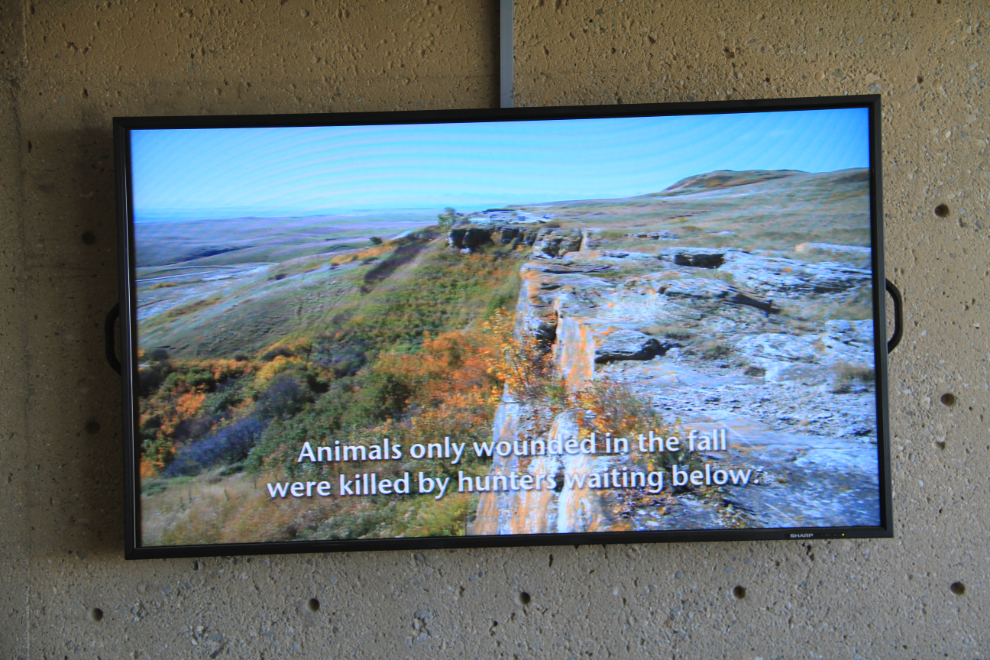
The displays inside are excellent – a brief look is possible, but a more in-depth one also is. Napi was the supernatural trickster of the Blackfoot peoples, and this section briefly describes the geography, climate and vegetation of the region.
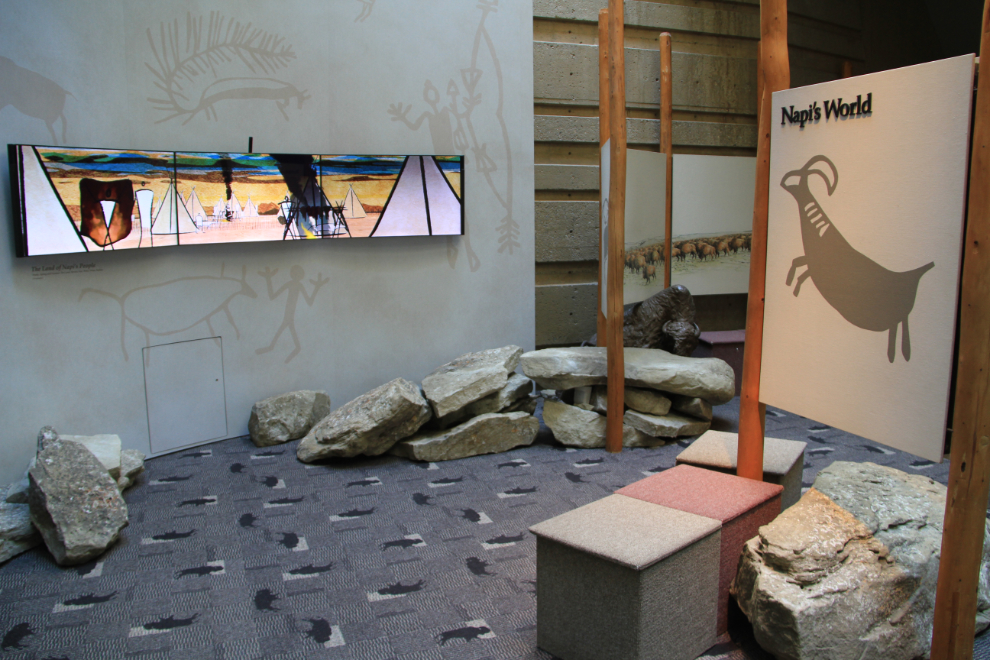
Some of the text is projected onto rocks – it’s apparently very effective, as that’s one of the things that I remembered most clearly from my visit 25 years ago.
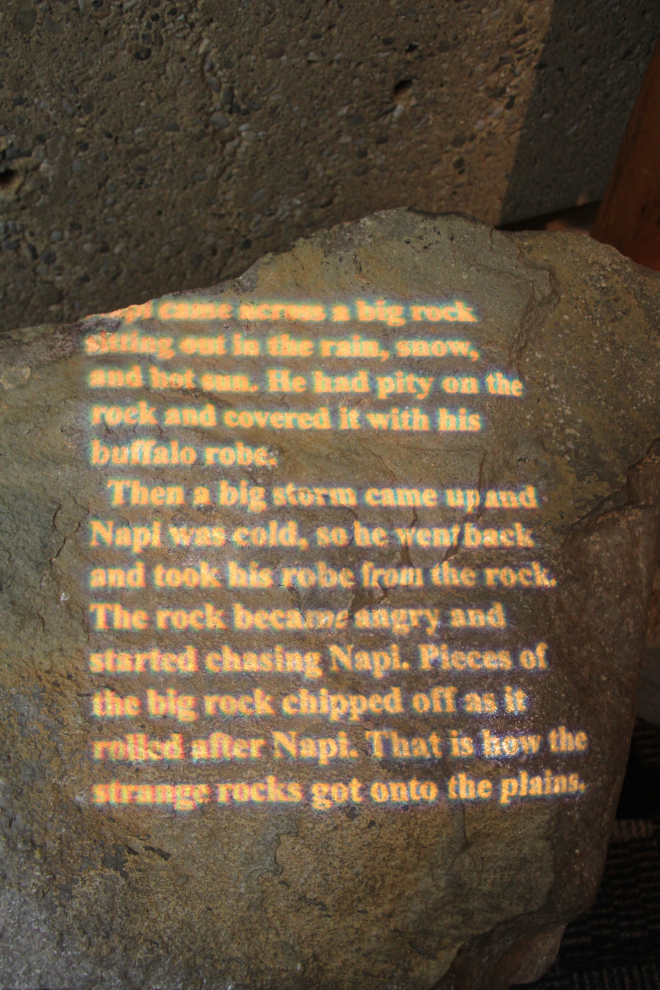
It’s very commonly said when discussing various Native peoples that they wasted nothing, but this board says otherwise: “In prosperous times, only the most desirable parts were taken, but when needs demanded, the butchering continued until nothing but the skull and a few other bones remained.”
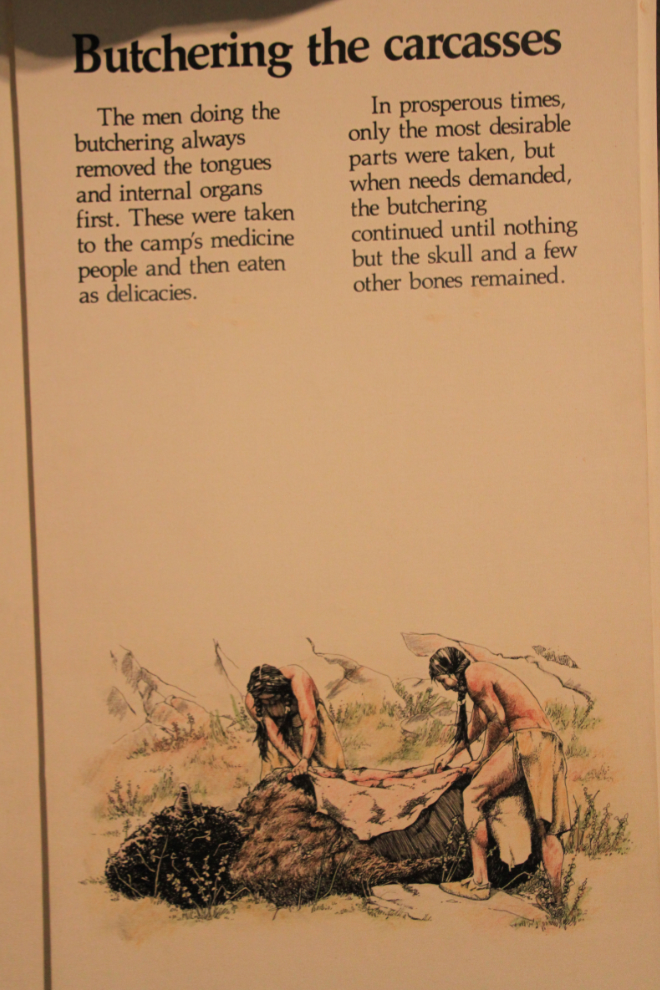
The slaughter of millions of buffalo by Euro-American market hunters is touched on surprisingly briefly, as that slaughter changed the lives of the Indians of the Great Plains forever.
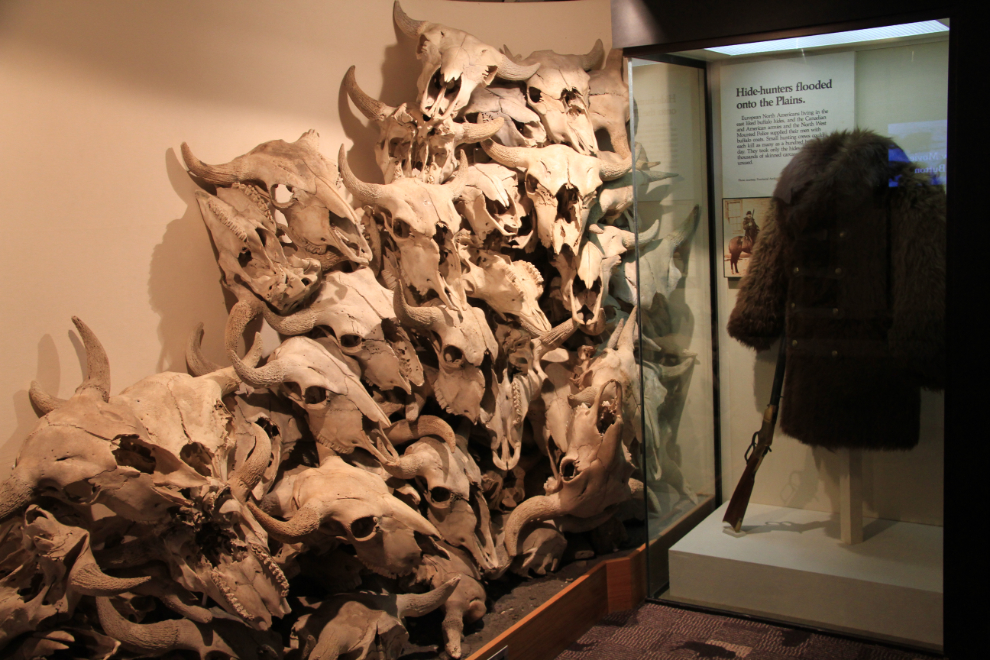
Looking up at a full-size replica of three buffalo at the edge of the precipice is very impressive.
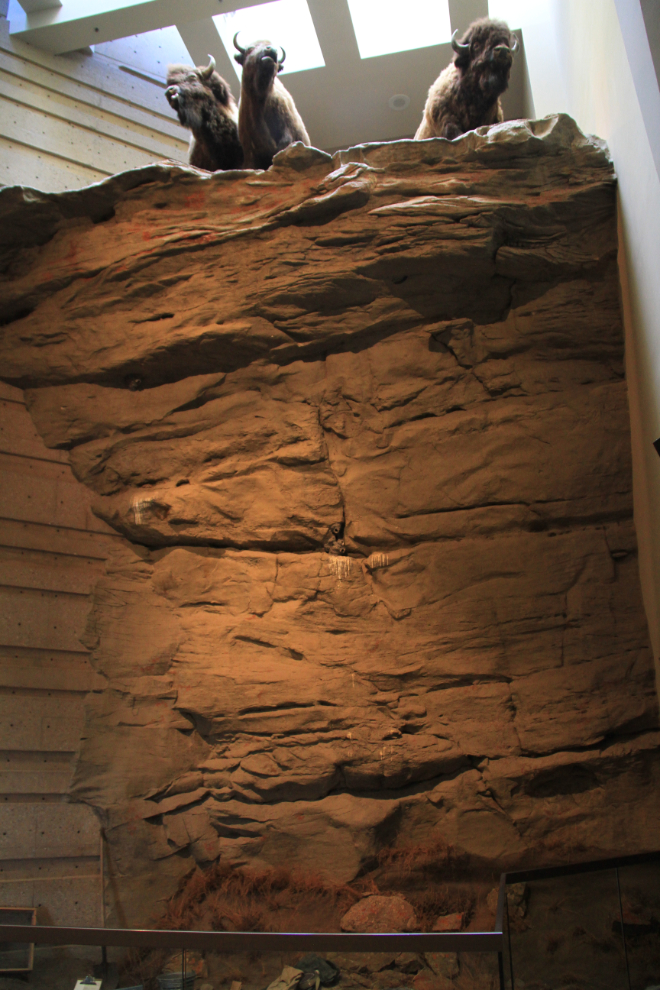
Nearing Calgary again, at 5:30.
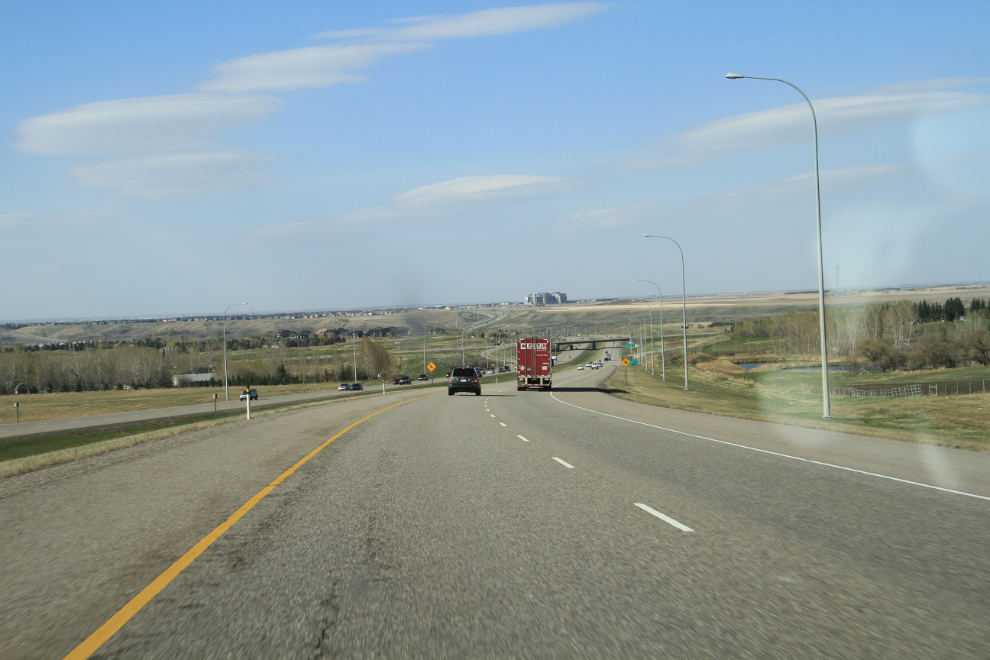
Last night, we went for dinner at Boogie’s Burgers, made famous by appearing on the TV series “You Gotta Eat Here.” The burgers are indeed as good as the TV show said 🙂
boogie_burger.jpg – Boogie’s Burgers
Today is a day of watching my grand-daughters play in a badminton tournament, and perform in a dance recital. Tomorrow, Mothers Day, maybe some exploring as a family…
